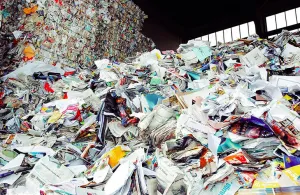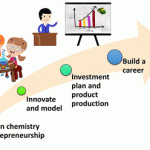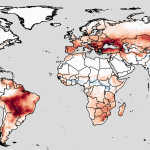In a groundbreaking development, scientists from Nanyang Technological University, Singapore (NTU Singapore) have discovered a revolutionary technique to convert paper waste into battery components for Mobile phones and electric vehicles, including single-use packaging, bags, and cardboard boxes, into a battery component of lithium-ion batteries. This innovation has the potential to power mobile phones, medical equipment, and electric vehicles sustainably.
The NTU researchers employed a process called carbonization to convert paper fibres into pure carbon, creating electrodes that can serve as rechargeable battery components. By subjecting the paper to high temperatures in the absence of oxygen, it is reduced to pure carbon, water vapour, and oils that can even be used for biofuel. This greener alternative eliminates the large greenhouse gas emissions associated with traditional kraft paper incineration.
NTU researchers have developed an innovative method to convert paper waste, including paper bags and cardboard, into battery components for electric vehicles and smartphones. This approach addresses environmental concerns related to paper waste, reduces carbon emissions, and advances towards a circular economy and clean energy. The team has filed for a patent and aims to commercialize this green technology.

Method
The NTU researchers utilized laser-cut and joined thin sheets of kraft paper to create various lattice geometries, resembling spikey piatas, to produce carbon anodes. These anodes were formed by heating the paper to 1200°C in a furnace without oxygen, converting it into carbon.
The unique arrangement of paper fibres in the anodes contributes to their exceptional durability, flexibility, and electrochemical properties. The NTU team believes that these characteristics would enable batteries in phones, laptops, and automobiles to better withstand shocks from falls and crashes, addressing the issue of current carbon electrodes cracking and crumbling after physical impacts, leading to reduced battery life over time.
The researchers are confident that their anodes would extend the lifespan of batteries, benefiting a wide range of applications, from electronics to electric vehicles. Co-author, Lim Guo Yao, a research engineer from NTU, praised the anodes for their combination of strengths, such as durability, shock absorption, and electrical conductivity, making them a sustainable and scalable alternative to current carbon materials. They hope that these anodes will meet the growing demand for sustainable and greener battery materials, as traditional battery manufacturing and waste management have negative environmental impacts.
The NTU team plans to continue their research to enhance the energy storage capacity of the material and reduce the heat energy required for converting paper into carbon.
Cost-Effective and Eco-Friendly
Compared to current industrial methods for battery anode manufacturing, the NTU-developed process uses less energy-intensive procedures and avoids the use of heavy metals. With the anode accounting for 10 to 15 % of the total cost of a lithium-ion battery, this innovative method, relying on low-cost waste paper, is expected to significantly reduce production costs.
This breakthrough not only provides a more sustainable solution for carbon sources, reducing reliance on mined and chemically processed carbonaceous fillers and binders but also offers a greener approach to energy storage. Published in the scientific journal Additive Manufacturing, this research showcases the potential for transforming waste paper into high-performance battery components, revolutionizing the battery industry, and contributing to a cleaner, eco-friendly future.
For more information https://www.novozymes.com/en/solutions/pulp-paper
other article: https://scitechupdate.com/index.php/android-14-satellite-sms-for-everyone/

